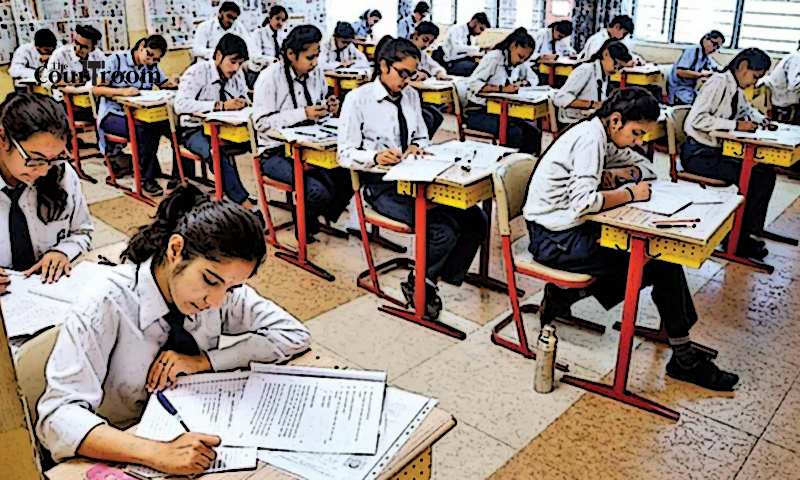Karnataka High Court Upholds State’s Decision on KSEAB Exams for Lower Grades
In a landmark ruling, the Karnataka High Court has upheld the State government’s decision to conduct “Board Exams” for students in classes 5, 8, 9, and 11, who are enrolled in schools affiliated with the Karnataka State Education Assessment Board (KSEAB). This decision, delivered by a Division Bench comprising Justices K Somashekar and Rajesh Rai K, marks a significant legal development, overturning a previous single-judge verdict issued on March 6. The earlier ruling had invalidated certain notifications from the previous year that had paved the way for these examinations.
The Division Bench’s decision provides a green light for the State to proceed with the assessment process, which had been halted due to a Supreme Court order issued on March 12. Notably, the High Court clarified that these exams should not be perceived as traditional “Board Exams,” underscoring their distinctive nature.
To address the legal intricacies surrounding the matter, the Bench formulated three pivotal questions:
(i) Whether the KSEAB exams qualify as Board Exams?
(ii) Whether the State’s 2023 notifications violated sections of the Right to Education Act (RTE Act)?
(iii) Whether prior publication was necessary for notifications issued under Section 22 of the Karnataka Education Act, and if State actions infringed upon Section 145 of the same Act?

After careful deliberation, the Court concluded that the State had merely established guidelines for exam conduct, refuting claims of violations against the RTE Act. Additionally, during recent hearings, the State asserted that these exams were distinct from traditional Board Exams and were part of students’ continuous assessments.
The judgment emphasized that these assessments, conducted by students in their classrooms, were aimed at monitoring school performance rather than detaining students or altering existing syllabi. Moreover, the Court directed the State to engage stakeholders before announcing assessments for future academic years.
Legal representation during the proceedings included Advocate KV Dhananjay for the original writ petitioners, Advocate A Velan representing a parent-student association, and Advocate Prithveesh MK supporting the State’s position as an intervenor.
The Court’s decision reflects a careful consideration of legal arguments and highlights the State’s prerogative in setting educational standards and assessment protocols. By allowing the assessment process to resume, the Court has upheld the importance of continuous evaluation in the educational framework while ensuring compliance with legal provisions.
The ruling also underscores the significance of collaborative decision-making, as the Court mandated consultation with stakeholders for future assessments. This approach aligns with principles of transparency and inclusivity, fostering a more participatory educational system.
In conclusion, the Karnataka High Court’s verdict reaffirms the State’s authority to conduct assessments for lower grades and underscores the nuanced nature of educational governance. By balancing legal scrutiny with educational imperatives, the Court has provided clarity and direction in a crucial aspect of educational policy.
If you wish to have your News, Articles, Deals, Columns, or Press Releases showcased on The Courtroom, we kindly invite you to complete the form available through the provided link.


